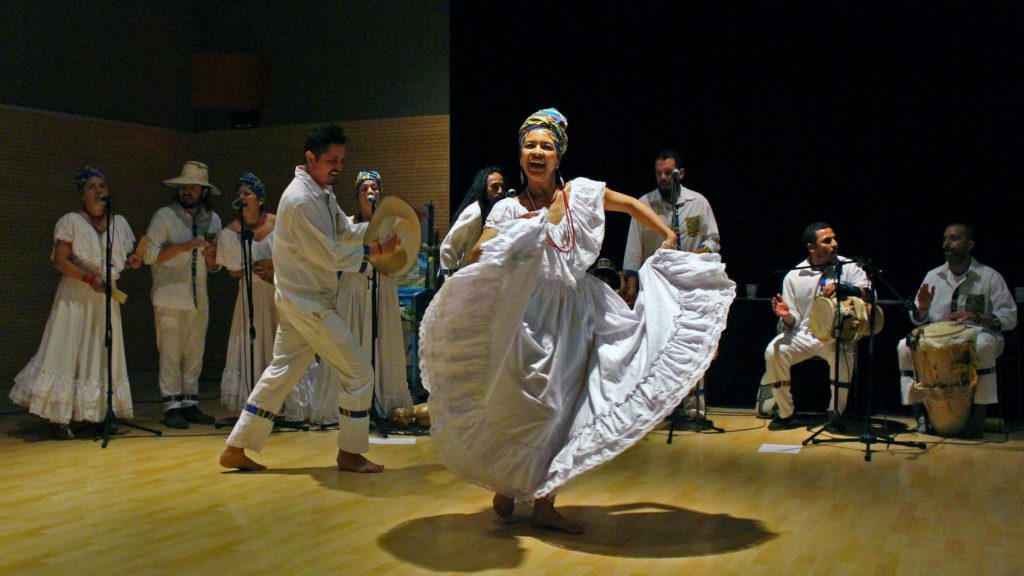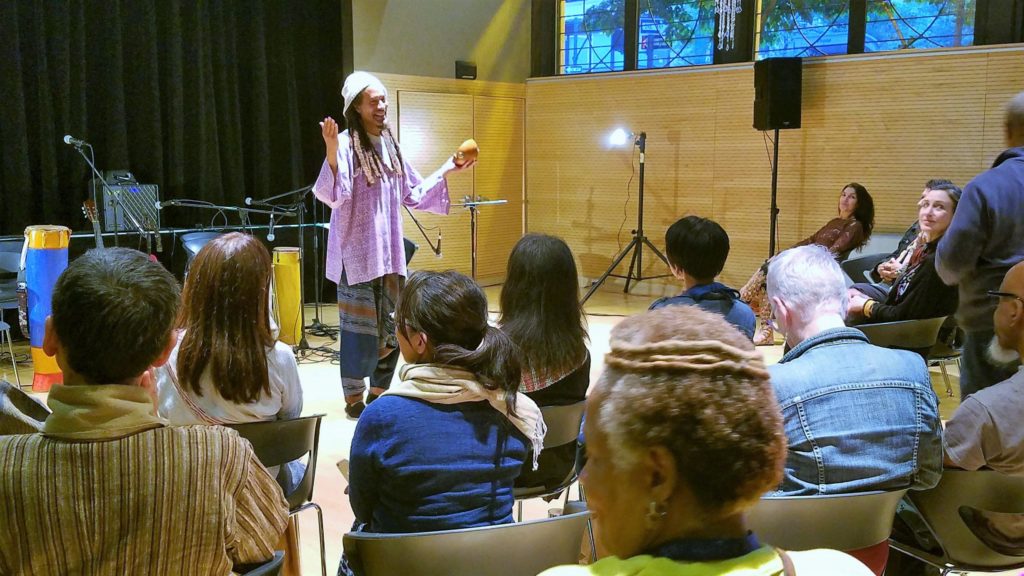

For updates on upcoming shows, email kevinmbira@hotmail.com to be added to the Afro Roots email list or join the Afro Roots Tuesdays group on Facebook.
If Kevin Nathaniel could tell you just one thing about Afro Roots Tuesday it would be this: It’s not about drumming.
“A lot of people get in their heads that it’s the same thing every time — a drum circle,” says the Afro Roots creative director, shaking his dreadlocks with a wry smile. “But it’s really so much more than that.”
Indeed, it would be hard to find a more eclectic music series than Afro Roots. The shows, which happen every other Tuesday at our Bernie Wohl Center, have recently featured everything from southern Italian roots music, to Indonesian gamelan, to Afro-funk, New Age trance, and even a concert of early chamber music from Northern Africa.
“He’s brought in music from so many countries,” says Goddard Riverside Community Arts Director Susan Macaluso. “When I ask him what the connection is, he says everything, rhythmically, comes from Africa.”
Nathaniel himself is a highly-regarded performer with a number of albums to his name. Music was a calling that came to him late in life. As a child in Detroit, he tried playing piano, clarinet and saxophone, but abandoned them all. Then in 1982, as a young man, he heard the mbira — or African thumb piano — for the first time. He was hooked.
“It was playing in my head all the time. I started to think, I’ve got to do this. I have to be creatively involved with this.”
He began collecting found objects and using them to build mbiras and other instruments. He went on to study with Zimbabwean mbira master Ephat Mujuru. In 1985 he moved to New York to become part of the music scene, and began playing on the street in the West Village every night.
Eventually Nathaniel was invited to join the group Spirit Ensemble, which became popular in the late 80s and early 90s. Over the years, he added the steel pan, xylophone, drums and shekere (a hollow gourd covered with beads) to his repertoire. And he met lots and lots of musicians — a giant database of performers he draws on to this day.
Afro Roots Tuesdays got its start in 2012 at Nine Bleecker Street, then the legendary headquarters of the Yippies radical movement. The manager was struggling to keep the series afloat so he asked Nathaniel for help booking guests. The shows began to succeed — but when the building was sold the next year, Afro Roots became rootless. Nathaniel went from club to club, looking for a new host.
“I was asking people in different venues if they would like the series. And they all said yes,” Nathaniel recalls. But they all wanted him to pay upfront for the space—effectively taking the financial risk on himself.
One day he came to the Bernie Wohl Center on an unrelated errand—to discuss teaching drumming at the Community Arts program, which was just launching at the time. He mentioned Afro Roots to Macaluso, and she was sold.
“We knew we wanted to make the program accessible to the entire community. We wanted a home for artists. It seemed like a good fit,” says Macaluso.
With nearly five years under its belt at the Bernie Wohl Center, the series now draws a regular and eclectic crowd — “a rainbow of people,” Nathaniel calls it. His favorite guest so far? “A hundred-year-old woman who stood up and danced.”
If there’s a single concept that ties the shows together, he adds, it’s a focus on artistry.
“I’m really interested in people who are deeply involved in their craft,” says Nathaniel. A lot of today’s biggest pop stars don’t play their own instruments, he points out. Meanwhile, world music has receded from the national consciousness — and from local stages.
“Afro Roots tells a story about New York City and what this city has that no other venue is telling,” he explains. “Without it, this city would be missing a big chunk of culture.”